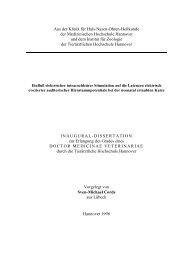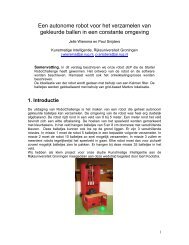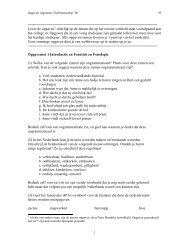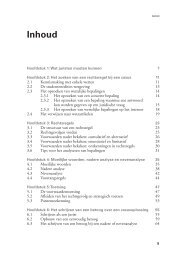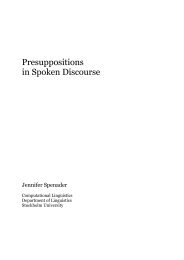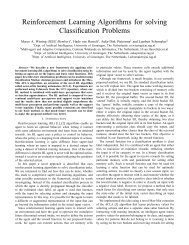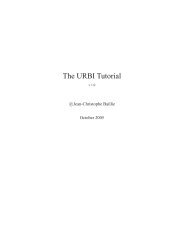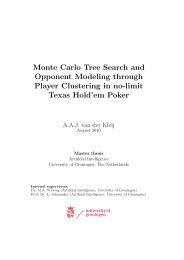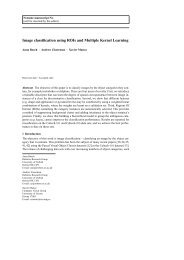Afstudeerscriptie - Kunstmatige Intelligentie - Rijksuniversiteit ...
Afstudeerscriptie - Kunstmatige Intelligentie - Rijksuniversiteit ...
Afstudeerscriptie - Kunstmatige Intelligentie - Rijksuniversiteit ...
You also want an ePaper? Increase the reach of your titles
YUMPU automatically turns print PDFs into web optimized ePapers that Google loves.
• Siegler, R.S. (1981). Developmental sequences within and between concepts. Monographs of<br />
the Society for Research in Child Development, 46(2), 1-74.<br />
• Simon, T.J., & Halford, G.S. (1995). Computational models and cognitive change. In: T.J.<br />
Simon en G.S. Halford (eds.), Developing Cognitive Competence. Hillsdale, NJ: Lawrence<br />
Erlbaum Associates.<br />
• Simon, T.J., & Klahr, D. (1995). A computational theory of children‚s learning about number<br />
conservation. In: T.J. Simon en G.S. Halford (eds.), Developing Cognitive Competence.<br />
Hillsdale, NJ: Lawrence Erlbaum Associates.<br />
• Taatgen, N.A. (2000). Proceduralization in ACT-R (Tech. Rep.). Groningen University, The<br />
Netherlands. (Retrieved from World Wide Web:<br />
http://www.ai.rug.nl/~niels/proceduralization.html)<br />
• Taatgen, N.A., & Anderson, J.R. (2002). Why do children learn to say "Broke"? Cognition,<br />
86(2), 123-155.<br />
• Todd, P.M., & Gigerenzer G. (2000). Précis of Simple heuristics that make us smart.<br />
Behavioral and Brain Sciences, 23, 727-780.<br />
114



